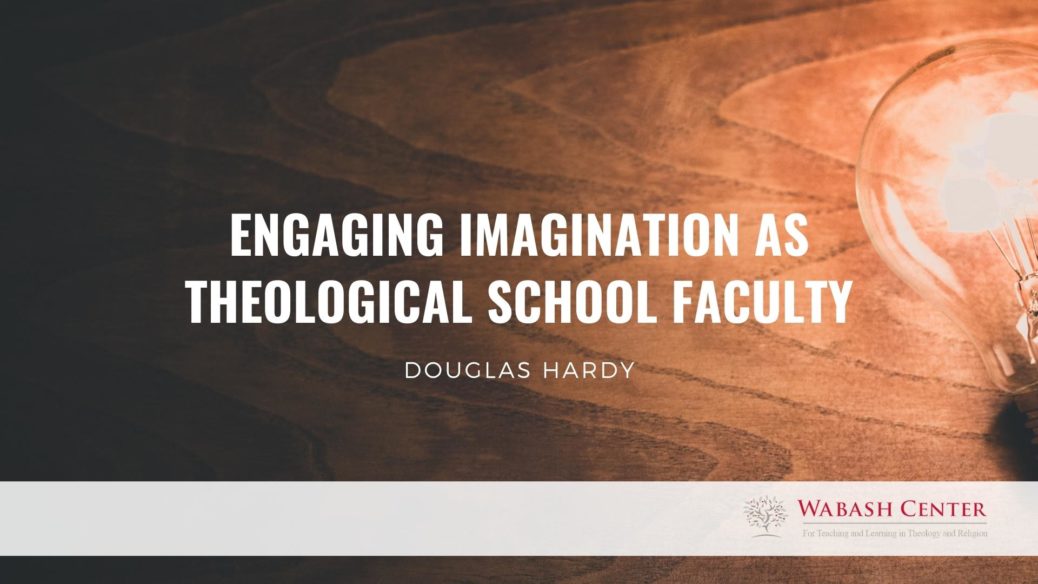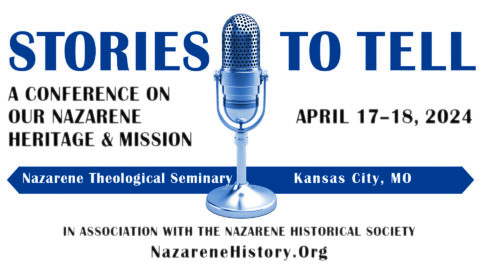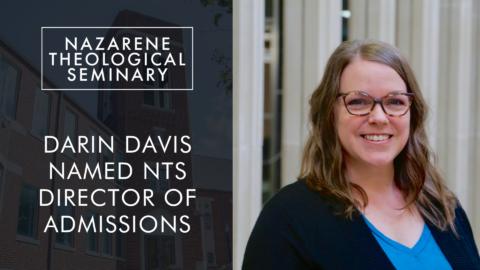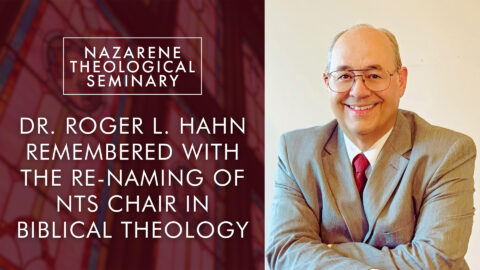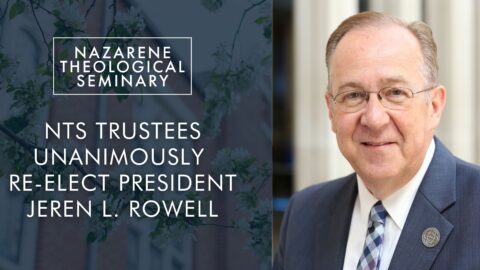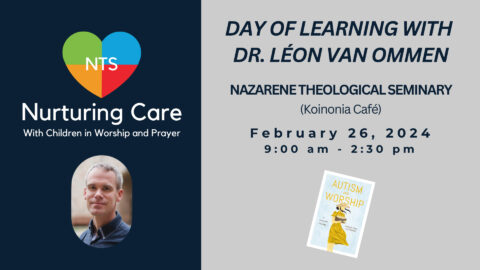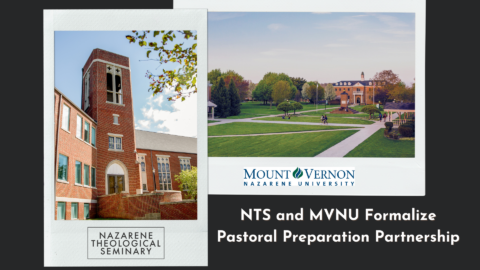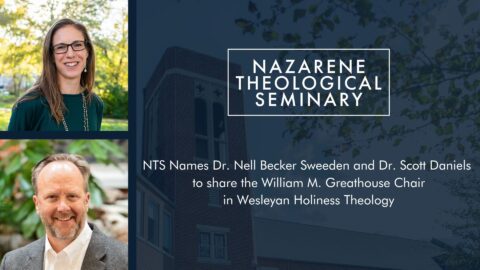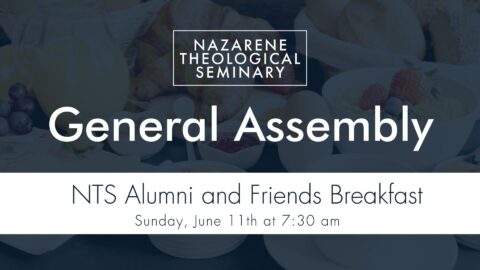While beginning my sabbatical during the summer of 2020, I applied for and was accepted into a program for theological educators sponsored by the Wabash Center for Teaching and Learning in Theology and Religion. Responding to the needs of faculty for conversation and guidance in how to respond to the COVID-19 pandemic and its impact on education, the center created “digital salons”—virtual cohorts of faculty peers who could meet regularly online for sustained conversation about the changes that have occurred in the move to increased digital formats and the new emerging landscape of teaching.
Faculty, like all professionals, need assistance and encouragement for navigating this moment of upheaval, uncertainty, and change. I know I do. The opportunity to meet monthly with thirteen other theological educators who are facing similar issues in their school as we are at NTS has been a great gift. Under the facilitation of Amy Oden of Saint Paul School of Theology, Roger Nam of Candler School of Theology, and Paul Myhre of the Wabash Center, our group is focusing on “Engaging Imagination as Theological School Faculty.” We are a diverse group in terms of gender, ethnicity, geography, faith/ecclesial traditions, and represent both free-standing seminaries and university-based theology schools. Through imaginative and pedagogical reflection, we explore what is being discovered in this peculiar moment about teaching, learning and the teaching life.
Beginning in September 2020 and continuing through April 2021 we meet monthly via Zoom to dialogue and brainstorm creative ideas for the habits, practices, and approaches to teaching most needed in the midst of the novel coronavirus pandemic. However, our purpose is not primarily to produce a product. Rather, the emphasis is upon play, creativity, self-care, and keeping well the authentic voice needed in times of crisis. We encourage one another to stay with the processes of imaginative and pedagogical reflection as we rethink, reengineer, recast, redesign, and reconceive teaching during and beyond this crisis moment.
We gather to explore what is now possible in theological education – in our classrooms, in our course design, in our spiritual lives, in our pedagogy and scholarship as well as in our common life within institutions – that perhaps didn’t seem possible before COVID-19. We listen to our lives in this moment as we discern new paths for the vocation of teaching.
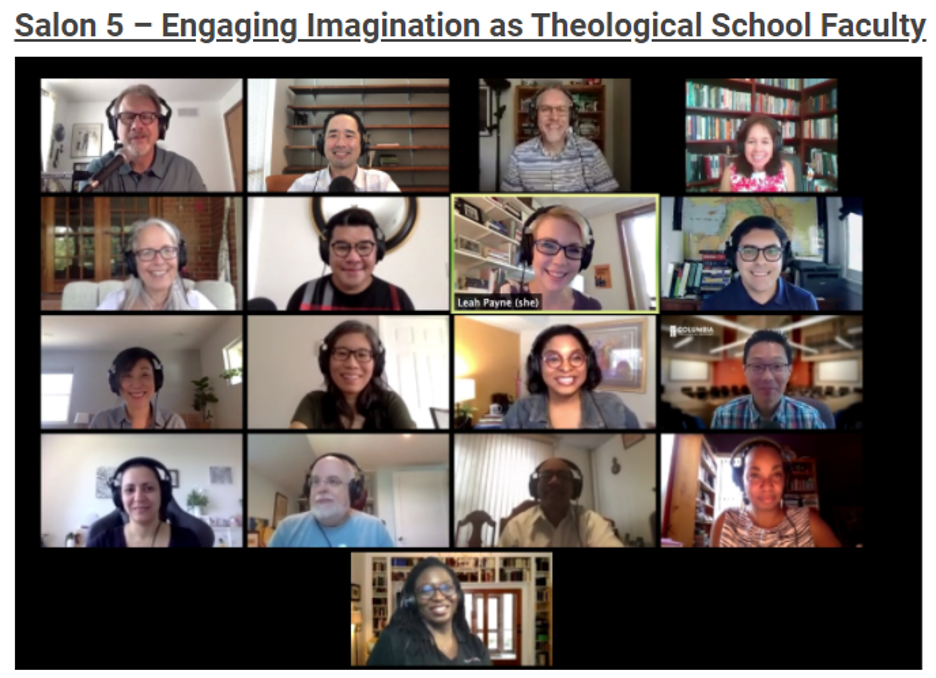
At the beginning of our very first Zoom meeting back in September, I was nervous about my participation. I did not know anyone in the group and some of them seemed to know each other already. I felt a bit of anxiety about whether I would fit in and be able to connect well. As the session unfolded, these fears dispersed as it became clear that this group was going to be a gift to me:
- something new and not pre-packaged,
- an opportunity to encounter and learn to appreciate “others” who are different than me,
- being received and affirmed by the group and given a voice alongside others,
- knowing that we didn’t have to produce or prove anything,
- the primary focus being on our spiritual formation as persons.
In November I awoke one morning from dreaming with this phrase clear and firm in my mind: “Imaginative Expression of Vocational Identity.” The Wabash Digital Salon group was influencing me even through my dreams! Returning to full-time teaching at NTS this semester after completing my sabbatical I feel very affirmed in my vocational identity as a theological educator. How I express that already looks different than when I first began teaching here almost nineteen years ago. This program is helping me to bring full imagination and creativity to my work:
- as our faculty engages in significant curriculum revision,
- I adapt my courses to fully online and video-based delivery formats,
- I seek to cultivate sacred spaces for learning and opportunities for spiritual direction in turbulent times,
- We find ways to build communities of learning in a time of pandemic, racial injustice, political divides, and church crises.
I am grateful to the Wabash Center for Learning for investing in my health and well-being as a teacher and for helping me to find and use my voice as a theologian for these times.
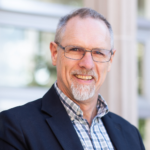
Dr. Douglas Hardy
Professor of Spiritual Formation

